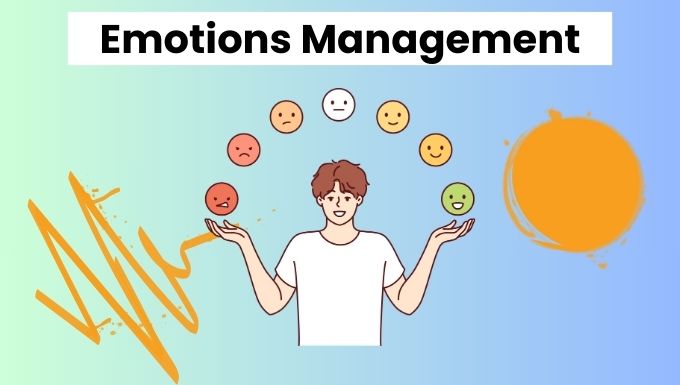When it comes to betting, emotions are your best friend and your worst enemy. I’ve been there; riding high of a winning streak, feeling unstoppable, only to crash hard when I lost.The worst is chasing losses because I couldn’t accept the outcome. Over time, I’ve learned that managing your emotions isn’t about being cold or robotic; it’s about staying in control so you can make smarter decisions.
The truth is, betting is emotional. It’s exciting, frustrating, and sometimes downright stressful. But the difference between winning and losing often comes down to how well you handle those emotions. When you let them take over, you start making bets you wouldn’t normally make, ignoring your strategy, and risking more than you should.

It’s not about eliminating feelings; it’s about recognizing when they’re influencing your decisions and knowing how to step back. Whether it’s setting limits, staying patient, or learning to walk away after a loss, small changes in how you handle your emotions can make a huge difference. Betting is already unpredictable; don’t let your emotions make it even harder.
Understanding Your Emotional Triggers
When it comes to betting, understanding your emotional triggers is like having a secret weapon. I’ve learned that recognizing what stirs emotions can significantly impact the decision-making process. For instance, I often feel a rush of excitement when I place a bet on my favorite team. That thrill can quickly escalate into overconfidence, leading me to make impulsive wagers that don’t align with my strategy.
One of the biggest triggers can be fear of missing out (FOMO). When you see others celebrating their wins, it can push you to chase losses or jump into bets that you wouldn’t normally consider. This emotional response can cloud your judgment, making it essential to take a step back and assess the situation calmly.
Another trigger for me is frustration after a series of losses. It’s easy to fall into the trap of trying to “get even” by placing larger bets, but this often leads to more disappointment. Instead, I’ve found that acknowledging these feelings and taking a break can help me regain perspective.I would recommend keeping a journal of all your betting experiences so as to help you in identifying or tracking the patterns in emotional responses.
Setting Limits Before You Start And Sticking To Them
Setting limits before you start betting and sticking to them is one of the most important lessons I’ve learned in managing emotions while betting. It’s easy to get caught up in the thrill of the moment, especially when you’re on a winning streak or trying to recover losses. But without clear boundaries, emotions can take over, leading to impulsive decisions and regret.
For me, setting limits starts with deciding how much money I’m willing to lose before I even place a bet. This is my “walk-away” number—the point where I stop, no matter what. I also set a time limit to avoid spending hours chasing wins or dwelling on losses. These boundaries help me stay grounded and remind me that betting is supposed to be fun, not stressful.
Sticking to these limits, though, is where the real challenge lies. There have been times when I’ve been tempted to go “just one more round” or throw in a little extra cash, thinking I could turn things around. But I’ve learned that bending the rules I set for myself only leads to frustration and disappointment. Now, I treat my limits as non-negotiable, like a contract with myself.
Handling Losses Without Losing Your Cool
Handling losses in betting without losing your cool is one of the toughest but most essential skills to master. I’ve been there; sitting in front of the screen, heart racing, hoping for a win, only to watch it all slip away. It’s frustrating, even crushing at times. But over the years, I’ve learned that how you handle those losses defines your relationship with betting more than the wins ever could.
First, remind yourself that betting is a game of probabilities, not guarantees. No matter how confident you feel, there’s always a chance you’ll lose. Accepting this reality helps detach emotionally. Also setting strict limits for yourself both in terms of money and time it’s important.When you hit the limit it’s best to walk away. No excuses. This discipline keeps from spiraling into regret or chasing losses, which only makes things worse.
When a loss stings, take a moment to breathe and reflect. Ask yourself :Did you make a rational decision, or were you driven by impulse? If it was the latter, use it as a lesson. If it was the former, remind yourself that even the best strategies don’t always work out. Learn to lean on your support system—talking to a friend or family member helps to process the disappointment without letting it consume you.
Staying Patient And Avoiding Impulsive Bets
Staying patient and avoiding impulsive bets is one of the most challenging yet crucial aspects of managing emotions in betting. I’ve learned this the hard way, through moments of frustration and regret. Early on, I’d let my emotions take over; whether it was chasing losses after a bad streak or getting overly confident after a win. Those impulsive decisions rarely ended well. Over time, I realized that betting isn’t just about luck or gut feelings; it’s about discipline and emotional control.
Patience, for me, means stepping back and thinking before acting. It’s about setting clear limits and sticking to them, no matter how tempting it is to deviate. I’ve found that taking breaks helps immensely. When I feel the urge to make a quick, emotional bet, I pause, breathe, and remind myself that betting is a marathon, not a sprint. Rushing decisions often leads to mistakes, and those mistakes can snowball into bigger losses.
Another key lesson is to separate emotions from the outcome. Wins feel amazing, and losses sting, but neither should dictate the next move. I’ve started treating betting like a strategy game, where logic and patience are my greatest tools. It’s not always easy, especially when emotions run high, but staying grounded has made a world of difference.
Staying Realistic
Staying realistic in emotions management, especially in betting, is something I’ve learned the hard way. When I first started, I’d get carried away by the highs of a win or crushed by the lows of a loss. It felt like a rollercoaster, and honestly, it was exhausting. Over time, I realized that managing my emotions wasn’t about suppressing them but about staying grounded and keeping perspective.
One thing that helped me was setting clear boundaries. I decided early on that betting would never be about “getting rich quick” or chasing losses. Instead, I treat it as a form of entertainment, like going to a movie or dining out. I set a budget, money I can afford to lose, and stick to it. This mindset shift took the pressure off and allowed me to enjoy the process without letting emotions take over.
Another key lesson was accepting that losses are part of the game. No matter how much research or strategy you put in, there’s always an element of chance. Instead of beating yourself up over a bad day, remind yourself that it’s just not your lucky day. Wins feel great, but they don’t define you ,just as losses don’t either.
Lastly, I’ve learned to take breaks. When emotions run high, stepping away helps to reset and refocus. Staying realistic means recognizing when you’re too emotionally invested and giving yourself space to breathe. It’s not always easy, but it makes betting much healthier and more enjoyable experience .
In conclusion, managing emotions in betting is a journey of self-awareness and discipline for me. It’s easy to get swept up in the thrill of a win or the frustration of a loss, but I’ve learned that staying grounded is key. By setting clear boundaries, like a strict budget and realistic expectations, I’ve been able to keep my emotions in check and avoid impulsive decisions. Accepting that losses are inevitable is also a game-changer—it helps to approach betting with a healthier mindset, whereas focusing on the experience rather than the outcome.
Taking breaks has been another crucial part of strategy. When I feel myself getting too emotionally invested, I step back and remind myself that betting is just one small part of my life. It’s not worth sacrificing my peace of mind over. At the end of the day, managing emotions in betting isn’t about being emotionless—it’s about staying balanced and in control. You


